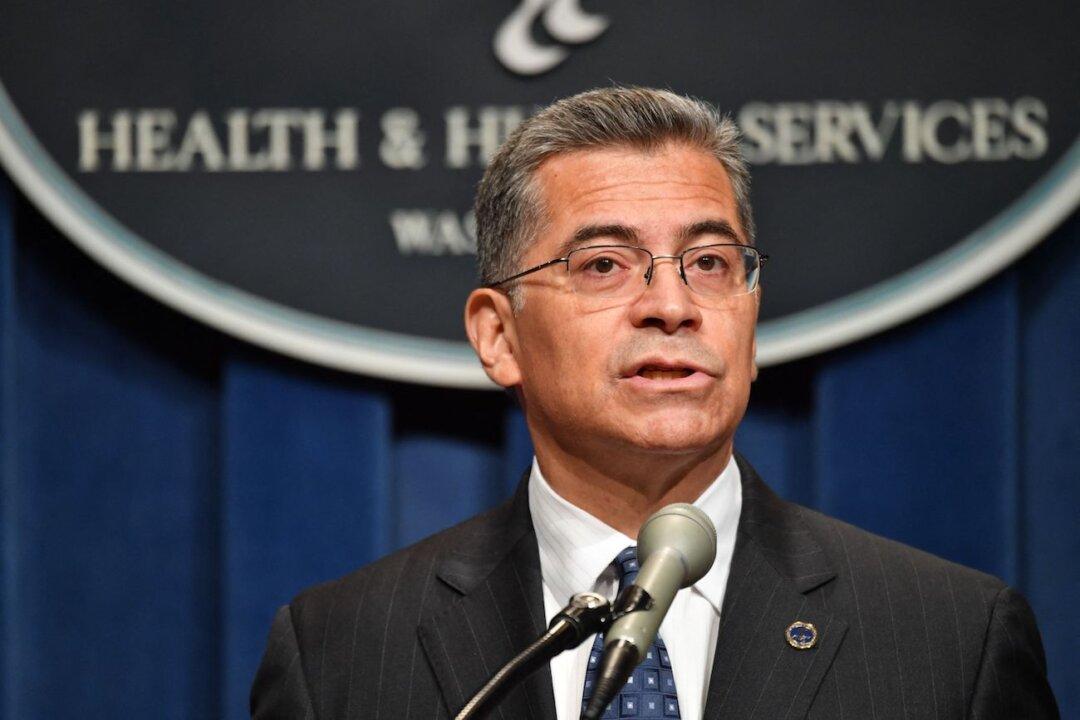President Joe Biden’s administration concedes that there is no scientific evidence to support an apparent recommendation to receive as many as six COVID-19 booster shots in a year.
After Health Secretary Xavier Becerra, a Biden appointee, wrote in a social media post on Nov. 29, 2022, that people should get vaccinated “if it’s been over 2 months since your last dose,” the Functional Government Initiative (FGI) filed a Freedom of Information Act request for documents supporting the statements.





